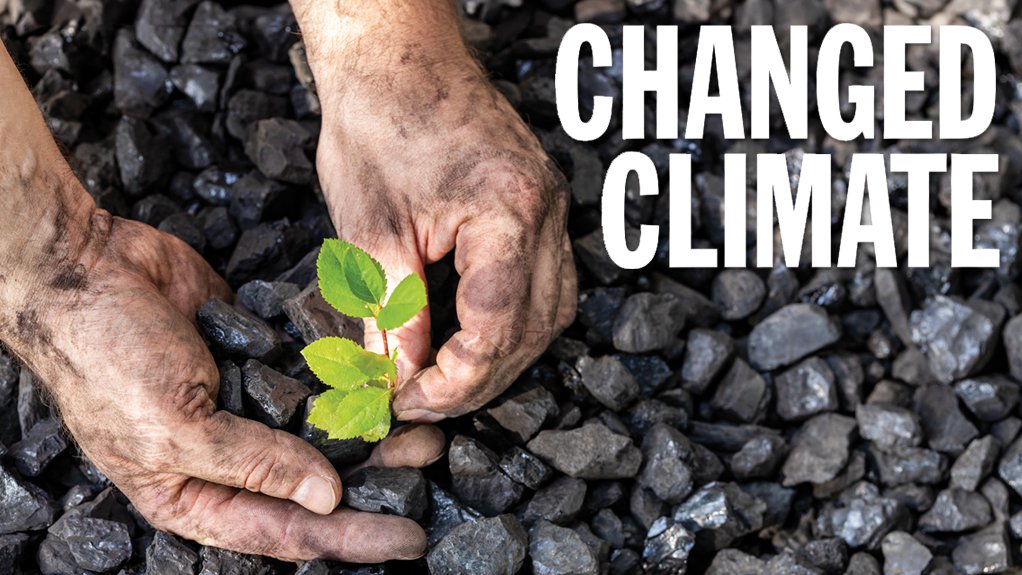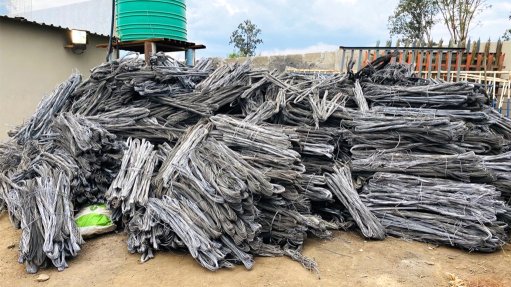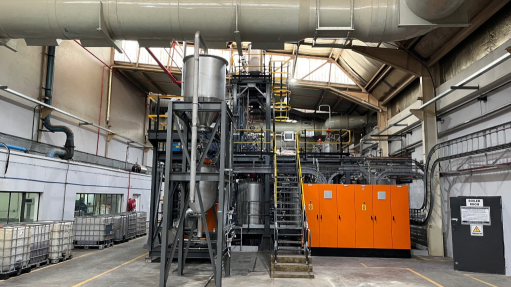Organised business embraces, with caveats, Climate Change Act



OVERLAP The Climate Change Act needs to clarify the interface between sectoral emissions targets, carbon budgets and carbon tax
With climate change perceived as one of the critical challenges threatening the viability of businesses, infrastructure and natural ecosystems, industry bodies Minerals Council South Africa and Business Unity South Africa (Busa) have welcomed the gazetting of the Climate Change Act (CCA) into law, highlighting its benefits while acknowledging some of its shortcomings.
The organisations – whose members include some of the largest carbon emitters in the country – have expressed their support for the CCA as a significant step towards addressing the country’s obligations under international climate frameworks such as the Paris Agreement.
“It is important for all stakeholders to understand that the CCA represents a transformative shift in South Africa’s approach to environmental and economic sustainability. Businesses should see this as an opportunity to not only comply with regulatory requirements but also. . . lead the way in innovation, resilience and long-term growth,” Busa energy and environment director Happy Khambule tells Engineering News & Mining Weekly.
“South Africa’s mining sector acknowledges that, to remain competitive globally and a key socioeconomic contributor, it supports the need to decarbonise, respond to shifting value pools and adapt to local climate change impacts while ensuring a just transition,” Minerals Council environment head Stephinah Mudau tells the publication.
The new legislation aims to facilitate the development of an effective climate change response and a long-term just transition to a low-carbon and climate-resilient economy and society for South Africa in the context of sustainable development.
Signed into law by President Cyril Ramaphosa in July, the CCA will, however, become effective only once promulgated, and will be implemented in a phased manner, starting with the development of detailed regulations and sector-specific guidelines.
Last month, Forestry, Fisheries and the Environment Minister Dion George said the department had made significant progress in implementing the CCA, including developing a detailed timeline for its roll-out and implementation, engaging regularly with stakeholders, participating in Presidential Climate Change (PCC) Commission meetings, and initiating collaborations with educational institutions to incorporate climate education into their curricula.
Sustainable Legislation
What have been hailed as positive elements of the CCA include addressing mitigation, adaptation and policy coordination across all levels of government; stakeholder consultation; the establishment of a PCC Commission and the creation of financing mechanisms.
The new legislation acknowledges the need for an effective, progressive and incremental response to climate change, Mudau adds.
The adaptation provisions in the CCA will also help to protect the operations and assets of mining companies.
Mudau also avers that the country’s “innovative approach” to the just energy transition (JET) has been indirectly incorporated into the CCA, and this aspect is likely to be positively received by investors.
Busa also supports the CCA’s focus on adaptation and mitigation measures, which recognise the country’s vulnerability to climate change impacts.
“The emphasis on long-term emission reduction targets is also commendable, as it aligns with South Africa’s international climate commitments. Additionally, we welcome the establishment of a clear governance structure that includes stakeholder engagement, which will promote transparency and accountability. These elements are likely to foster increased investment in clean technologies and drive innovation across industries,” Khambule explains.
Work in Progress
While both organisations support the CCA’s objectives, they have identified several facets that require attention.
Busa has raised concerns about certain provisions of the Act that could impose undue financial and operational burdens on businesses.
“For example, the carbon budget (CB) framework, though necessary, requires greater flexibility to account for sector-specific challenges. We believe the Act could be improved by providing more robust support for industries in transition, including tax incentives and access to finance for decarbonisation initiatives. Furthermore, there should be a phased approach to implementation, giving businesses time to adjust and innovate, without compromising their competitiveness,” Khambule expounds.
Busa members have also expressed concern over potential cost increases and operational changes that will be required to meet the Act’s mandates.
He notes that, while many businesses support the overarching goals of the CCA, they also emphasise the need for government assistance in the form of incentives, allowances and policy support to ensure a smooth transition.
Therefore, Busa has underlined the need to include mechanisms that consider sectoral differences, with high-emission sectors requiring additional support and time to comply.
The organisation also advocates for streamlined regulatory processes and clear guidelines that avoid the duplication of compliance efforts to manage and monitor situations where the CCA overlaps with other existing sustainability legislation to avoid regulatory uncertainty.
“A harmonised approach will enable businesses to comply with multiple laws more efficiently and reduce administrative burdens,” asserts Khambule.
The Minerals Council says that while Section 27 of the CCA deals with some important considerations for the Minister to consider when allocating the CB, the organisation is concerned about the unintended consequences whereby the allocation of the CB to a mining company could potentially curtail existing authorisation capacity.
Therefore, the Minerals Council always advocated for the carbon budgeting system, which does not curtail the actual production levels authorised through the existing regulatory approvals and authorisations such as the Mining Works Programme of a mining right in terms of the Mineral and Petroleum Resources Development Act, environmental authorisations in terms of the National Environmental Management Act, air emissions licences in terms of the National Environment Management: Air Quality Act, and water-use licences in terms of the National Water Act.
“This challenge can be resolved through well-crafted CB regulations that take existing authorisations into account and recognise the need for a phased approach to addressing greenhouse-gas (GHG) emissions,” Mudau says.
The Minerals Council is particularly concerned about the potential overlap between sectoral emissions targets (SETs) and the CBs – which are still to be fleshed out with the various industries in consultation with their Ministers.
In the Act, CBs allocate a volume of GHG emissions to major emitters, requiring the submission of mitigation plans by companies to meet this, while SETs will allocate the available remaining carbon space across sectors.
The CCA lacks detail on the SETs and how they do not overlap with CBs. Further, the CCA does not refer to the JET as an item to be considered when developing SETs and CBs.
“The distinction between the interface between SETs, CBs and the Carbon Tax is necessary because all these measures have an ultimate objective of achieving a low- carbon economy,” Mudau adds.
Busa notes that, without proper monitoring and enforcement, there could be loopholes in the carbon budgeting and offset mechanisms that some entities could exploit.
For example, entities could under-report emissions or overstate the use of offsets to comply superficially without making substantive changes to their operations, says Khambule.
“We advocate for aligned, transparent reporting frameworks that can accommodate third-party verification to ensure that businesses act in the spirit of the law, rather than relying on potential gaps for short-term compliance,” he notes.
Impacts
The CCA will have both positive and negative impacts on businesses and investment decisions, says Busa.
Companies that invest in low-carbon technologies stand to benefit from market opportunities and reputation enhancement, while the Act could also attract green investors and companies looking to be involved in growing South Africa’s green economy.
However, industries with high emission levels will face increased costs associated with compliance, including CBs and emission reduction requirements. These costs might impact on profitability in the short term, but they can be mitigated through innovative financing and policy support mechanisms, Khambule reassures.
Operationally, businesses might have to overhaul their supply chains and invest in new technologies to meet the CCA’s requirements, while those relying on carbon-intensive activities might perceive the CCA as a risk, owing to increased regulatory burdens.
“It will be important for the government to offer clear incentives, such as green financing and tax breaks, to encourage investment in climate- resilient sectors,” Khambule emphasises.
Augmenting Sustainability
Even prior to the CCA’s enactment, the mining industry had invested significantly in mitigation and adaptation measures to contribute to the broader response to the climate crisis, Mudau highlights.
“The CCA will solidify these efforts and strengthen future initiatives. Additionally, the Act will foster coordinated and integrated efforts between industries and government, moving away from the current disjointed and uncoordinated approaches to addressing climate change and its impacts.”
Therefore, upon the promulgation of the CCA, the industry will not fall short; it will, instead, be prepared in various areas, reinforcing initiatives already under way and those in development, such as transitioning to renewable-energy sources, adopting hydrogen-powered haul fleets and redesigning mine plans to address climate-induced extreme weather, she adds.
In support of the key tenets of the CCA and to showcase the mining industry’s decarbonisation efforts, Minerals Council South Africa released a position paper outlining key member commitments, supported by practical implementation guidelines, which it will be monitoring. The organisation has 70 members.
Busa plans to offer its 67 members guidance on regulatory changes, facilitate access to compliance tools and foster partnerships for knowledge sharing.
It also anticipates working closely with government to ensure that enforcement mechanisms are fair, and it aims to provide businesses with adequate policy support to avoid punitive measures while they adapt to new requirements, Khambule says.
Comments
Press Office
Announcements
What's On
Subscribe to improve your user experience...
Option 1 (equivalent of R125 a month):
Receive a weekly copy of Creamer Media's Engineering News & Mining Weekly magazine
(print copy for those in South Africa and e-magazine for those outside of South Africa)
Receive daily email newsletters
Access to full search results
Access archive of magazine back copies
Access to Projects in Progress
Access to ONE Research Report of your choice in PDF format
Option 2 (equivalent of R375 a month):
All benefits from Option 1
PLUS
Access to Creamer Media's Research Channel Africa for ALL Research Reports, in PDF format, on various industrial and mining sectors
including Electricity; Water; Energy Transition; Hydrogen; Roads, Rail and Ports; Coal; Gold; Platinum; Battery Metals; etc.
Already a subscriber?
Forgotten your password?
Receive weekly copy of Creamer Media's Engineering News & Mining Weekly magazine (print copy for those in South Africa and e-magazine for those outside of South Africa)
➕
Recieve daily email newsletters
➕
Access to full search results
➕
Access archive of magazine back copies
➕
Access to Projects in Progress
➕
Access to ONE Research Report of your choice in PDF format
RESEARCH CHANNEL AFRICA
R4500 (equivalent of R375 a month)
SUBSCRIBEAll benefits from Option 1
➕
Access to Creamer Media's Research Channel Africa for ALL Research Reports on various industrial and mining sectors, in PDF format, including on:
Electricity
➕
Water
➕
Energy Transition
➕
Hydrogen
➕
Roads, Rail and Ports
➕
Coal
➕
Gold
➕
Platinum
➕
Battery Metals
➕
etc.
Receive all benefits from Option 1 or Option 2 delivered to numerous people at your company
➕
Multiple User names and Passwords for simultaneous log-ins
➕
Intranet integration access to all in your organisation




















